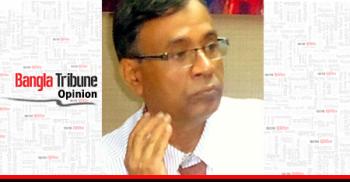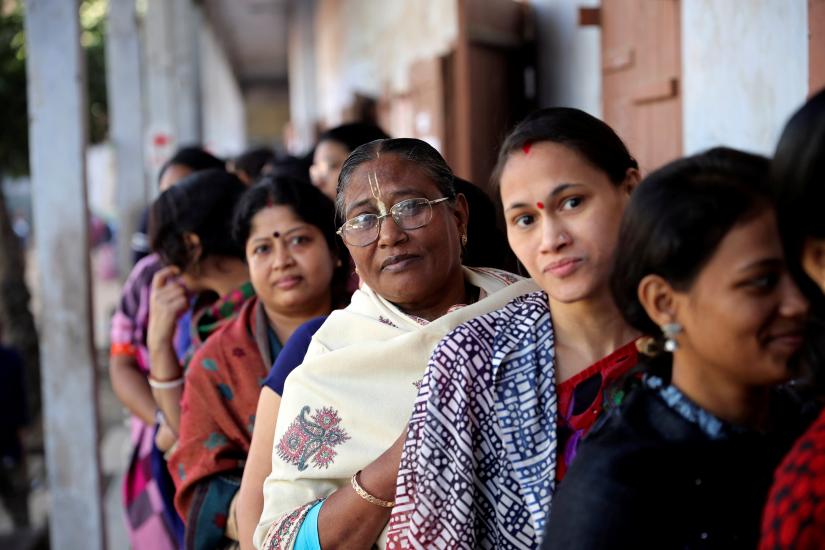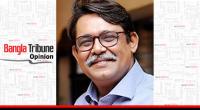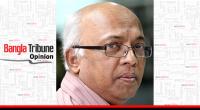 What was the political possibility of outcome of the election that took place in Bangladesh in December 2018? What kind of political preparation was there between the ruling party and their counterpart major opposition party? Was it a contest between politics of development vs. politics of democracy? Was it a flawless election? These are the issues briefly addressed here.
What was the political possibility of outcome of the election that took place in Bangladesh in December 2018? What kind of political preparation was there between the ruling party and their counterpart major opposition party? Was it a contest between politics of development vs. politics of democracy? Was it a flawless election? These are the issues briefly addressed here.
Before election I had opportunity of discussing with members of various strata of the society. Except one all opined that this time victory would be of the ruling party. But their responses were different as some mentioned that ruling party will win while some other opined that ruling party will override it. Out of them only one person opined that a silent ballot revolution will take place where the ruling party will be rejected by the people.
This time ‘fear’ and ‘power’ were the two determinants that have pushed the ruling party to exert all out efforts to ensure victory in the election. The fear issue was that if ruling party loses in election the opposition may go for frightening political revenge where thousands of the ruling party leaders and workers may be butchered. Likewise, the power was another matter of attraction. In the manifesto of the main opposition, this time, it was mentioned that they shall not go for any political revenge. But none from the ruling party trusted it as in after 2001 election atrocity to the minorities and AL workers and leaders were reported. Keeping that point in mind this time the minority group opened a control room to protect them from any kind of post-election atrocity. The Election Commission also alerted all concerned to address any emergency, if necessity arises.
Learning a lesson from the 1991 election, this time the ruling party has not left any stone unturned. Their inclusive approach, included unity of all party leaders (anchoring up to village level organization), unity with all like-minded parties, involving all cultural sectors like sportsmen, singers, actors and actress, retired civil and military officers, intellectuals, religious groups and finally an important religious rival politicalised group Hifazat–e Islam, Bangladesh was also neutralized. Short before the election Hifazat-e Islams’s Ameer held a reception for the prime minister for passing a bill to recognize their degrees. As reported, also received expected support from the loyal bureaucrats who were made satisfied with many facilities during their rule. Thus, all the possible actors were involved actively or silently who may matter in one way or other to influence the opinion of the people. The ruling party, thereof, followed a convergence model for winning the election.
Against these preparations, it seems the opposition was almost not ready to give a strong election fight with adequate, inclusive and all-out preparation. All along there wasa dilemma among them to participate or not to participate in the election. Unity of the party, formation of an effective extended alliance, making workers and leaders involved with the party activities, Jamaat-e-Islami issue, defeat in legal battles, selection of appropriate candidates, lack of apposite counter strategies against massive arrest, etc. were the major concerns for them. A clear difference was there which might be called a use of extended approach (here called stitching approach) versus a unified approach (or convergence approach) where the second one worked well compare to the first one.
The ruling party was taking preparation to take part in the election for about a year, conducting repeated opinion surveys, even covering all constituencies. The ruling party participated in a war while the main opposition party participated in a battle. It was considered an opportunity for the opposition to fight back the ruling party after 10 years. A huge portion of supporters of opposition was ready but the leaders were not adequately prepared to harvest it.  The opposition failed to respond to the demand of their supporters. Even three days before the election, the gloomy face of the supporters of the opposition was there who were disappointed with their leaders’ role. Some opposition candidates disqualified due to their loan default, punishment verdict from the court, disqualified for some other legal reasons, not giving nomination to some potential candidates, placing non-comparable candidates in many cases, etc. disappointed them which entailed not to cast vote for them.
The opposition failed to respond to the demand of their supporters. Even three days before the election, the gloomy face of the supporters of the opposition was there who were disappointed with their leaders’ role. Some opposition candidates disqualified due to their loan default, punishment verdict from the court, disqualified for some other legal reasons, not giving nomination to some potential candidates, placing non-comparable candidates in many cases, etc. disappointed them which entailed not to cast vote for them.
The ruling party depended on their acquired strength where the opposition relied on their inherited strength. Over the last 10 years opposition could not add much to their strength – morally or politically.
Opposition primarily relied on their words while the ruling party mostly depended on their works. The opposition argued for equality of opportunity without giving due emphasis on equality of effort. Ideas, commitments, and actions of the ruling party were basically superior to the opposition. The opposition party was lacking a sound vertical integration.
As the election was almost one-sided, so the mismanagement in the election was understandable. In many cases authority did not show their complete seriousness to monitor the election process. It could turn to a culture of mob. In the case of convergent model of the ruling party, the opposition could not develop any contingent model.
In the last few years in Bangladesh politics, priority to be given for development or democracy was widely debated. It was not a contest between ‘politics of development’ vs. ‘politics of democracy’ as politics of democracy was not understood like politics of development by the common voters. There was no reason to believe that politics of democracy was rejected by the people.
The election was not a flawless as none felt it necessary to make it totally spotless. Agencies involved with the management of election had many more things to do but they were hardly under any strong normative pressures received from any institution — formal and informal, national and international. All these have discredited this election to a certain extent.
Dr. Khurshed Alam is the chairman of private think tank, Bangladesh Institute of Social Research (BISR) Trust. He worked as a senior consultant for various government departments, World Bank, ADB, JICA and USAID. He was involved in preparing the national plan for the country by the government of Bangladesh in 2008. He can be reached at [email protected] and www.drkhurshedalam.info.


